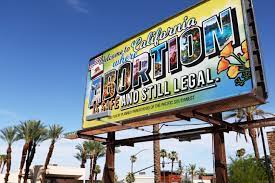 “Of Australian politicians, Penny Wong is wonderfully deft in a way that is not Ardern, yet from the same school; those who can stand outside themselves and see their image as others do. Her minimalist approach to herself is extremely effective.” Modest Expectations 11 May 2019
“Of Australian politicians, Penny Wong is wonderfully deft in a way that is not Ardern, yet from the same school; those who can stand outside themselves and see their image as others do. Her minimalist approach to herself is extremely effective.” Modest Expectations 11 May 2019
**
“I was worried by the absence of Penny Wong and the short statement that she has been ill has been left at that after she turned up on the Insiders program. The problem with presenting the Albanese foreign affairs approach is to work out what it is. Wong’s comment on Insiders:
Working with partners in the region to build our collective security, to diversify our export markets, secure supply chains, provide renewable energy and climate solutions, avert coercion, and respond to natural disasters. By investing financially and intellectually in the security and stability of our region – because defence capability on its own won’t achieve this. We share with ASEAN states an abiding interest in averting hegemony by any single power – so this is where our energy must be applied.” Modest Expectations 11 March 2022
Just my idle squiggles. Seems as if Albanese maybe came to the same conclusion.
Personal Responsibility – The Big Cop Out

Jennifer Hewett: “The idea of sitting in an office and wearing a mask, that is not going to work.” How ridiculous it is that we are not being led by important health advice and going instead with what journalists believe will or will not work.
Jennifer Hewett is one of those irritating know-it-alls, who patrols the border between “opinion” and “opinionated”. Watching this confetti of journalists last Sunday on Insiders pontificating on public health matters suggested to me that having this panel was as logical as after the next Federal Budget is released, Insiders having public health physicians as their expert panel. At least this latter group have been trained in scientific method.
That other pillar of self-opinionation, Peter Van Onselen, was free with his logic-free view, that “We don’t wear helmets in cars.” Yes, you do in racing cars… and when riding motorcycles and bicycles, because it is a matter of risk. Nor, do we wear body armour when we go for a drive. When I was young, I heard the same argument about so-called “personal responsibility” in relation to the introduction of seat belts. Now seat belts are accepted as a normal safety procedure. I ought to know – a seatbelt saved my life.
As with the seatbelt that broke my rib in the accident (so severe the impact), I have got the above off my chest. My outburst nevertheless expresses the frustration of a public health physician in relation to the state of commentary at present on the pandemic.
In a way, having a blog weekly during the whole pandemic attempts to emulate others who have done so during such trying times, such as Samuel Pepys.
The Prime Minister has said no more lockdowns, no more border closures. I wonder whether he really has understood the significance of that statement.
These were two factors which, from early 2020, guided public policy. This was a time when there was no national leadership, despite the incontrovertible fact that this was a pandemic, probably initiated in China.
The politicians were blindsided by the very word “pandemic”, confronted as they were by tales of the Spanish flu pandemic, which resulted in the deaths of millions of people worldwide in the early part of the last century.
Quarantine under the Australian Constitution is unambiguously a Commonwealth power. The then Prime Minister Morrison shifted, as he often did, responsibility rather than showing leadership by taking responsibility for a national plan. This inaction gave inordinate authority to a number of State chief health officers, rather than giving single point responsibility to Dr Paul Kelly as the Commonwealth Chief Medical Officer after Brendan Murphy was promoted to head the Commonwealth Department of Health.
One example of an out of control State Chief Health Officer was the bizarre behaviour including her litany of comments of Jeanette Young, the Queensland long term occupant of the post. She was just an extreme example as this fragmentation of authority resulted in contradictory babble. Confusion and anxiety were heightened across the community, and quackery substituted science as exemplified by the proposal of hydroxychloroquine and ivermectin as cures.
In this situation, the easiest response of politicians to show they are doing something is to close borders and within borders to impose restrictions on movement – the lockdown.
Lockdowns work, as testimony of the near elimination of influenza during 2020 and 2021; with the removal of restrictions, flu emerged ferociously this year.
Lockdowns are now considered political poison, but in 2020 it should be remembered that there were no vaccines, no antiviral drugs and even the most basic protective equipment was at a premium. Moreover, people were dying, mostly the elderly in nursing homes but not exclusively.
Nevertheless, there has been one constant with a plus in front of his name – Dr Paul Kelly, the Commonwealth Chief Medical officer.
This is as far I shall write this week. My diaries have a great deal more to say. The COVID Virus still hangs over me, but next week … and I just need more time to arrange the tale. So sorry, to dog it this week!
Nuts to you all!

We stopped in Balranald – always the one place I missed driving around and through the Far West of NSW. It seems Balranald was just not one of my backroads. People are used to talk about the Outback as being “Back of Bourke”, which probably relied on the bush balladeers travelling the country north-west of Bourke, an almost fabled shorthand for the Outback. Two hundred and twenty kilometres beyond Bourke, straddling the NSW-Queensland border is the tiny settlement of Hungerford. Hungerford has the romantic association of the Outback that Balranald lacks.
Henry Lawson, when he was employed as a journalist for The Bulletin, went to Hungerford. J. E. Archibald, then the Editor of The Bulletin, gave Lawson five pounds and a return train ticket to Bourke to go and write about this adventure. Lawson wrote a short story about Hungerford, to where he walked from Bourke – 220 kms in 1893.
No such legacy for Balranald.
In Balranald we stopped to seek directions. It was a Saturday afternoon, when people are scarce on a country town street. This guy was removing bins from the footpath. The casual “Hey mate” became a conversation, yarning about the town, where he had lived all his life. His forbears, the brothers Giansiracusas, left Sicily in 1932 and settled in Balranald, barely out of their teens. They became market gardeners, and he had grown up in the family business.
As he said, he had lived there all his life, and had watched the town slowly shrivel as a district centre – that is until recently. There were now mineral sand mines opening up, the source of titanium and zirconium, important in steel alloys. Mining of mineral sands had become a conservation problem in the more convenient coastal and riverine areas where they occurred in the past. In some of these areas sand mining was banned. However, being here on the Riverina plain in sparsely populated country, sand mining did not have the same conservation pressures.
When I was a boy, the area on the Murray around the Victorian border town of Robinvale was the centre of the dried fruit industry – the table grapes: muscatels, sultanas, red globes among them which, for a time, were a strong export item, particularly to the United Kingdom. What would Christmas be without table grapes!
Robinvale on the Murray River is about one hour’s drive from Balranald, which lies on one of the major tributaries of the Murray River, the Murrumbidgee. Table grape production as such has declined relatively in the area. Overseas competition and changing food habits have led to the decline in the value of the production.

The “Saviour” has come here in the form of the almond tree. There are hectares and hectares of these trees (over 10 million of them) being grown along the Murray River from the South Australia Riverland to the Sunraysia and then up the Murrumbidgee River, where Balranald has become a district centre for almond growing. Although sealers brought the almond tree to Kangaroo Island as far back as 1836, until the last 30 years growing almonds was a cottage industry in Australia. No more, as the Australian production approaches a billion dollar industry annually. Balranald has become a beneficiary of this planting.

There is also a substantial area close to Balranald being opened up to grow pistachios, a nut which has only recently emerged in the Australian lexicon. A hugely valuable crop to Iran and Turkey, its cultivation is also in America, which is a major producer. By comparison, Australian annual production is currently minuscule.

Around Leeton further up the Murrumbidgee, where once rice was the prime commodity, large broad acres are filled with walnut trees. The climate is perfect for growing these nuts. Recently, a furore has broken out with the fear that bees essential for pollination of almond blossoms will precipitously decline because of varroa mite infestation in NSW.
More threatening, given Australia is the “dry continent”, these nuts are voracious for water. As one source says “To grow one almond requires four litres of water. The crazy thing about that is that walnuts, hazelnuts, pistachios, and cashews all use roughly the same amount of water to grow as well, but it is the almond which is in such high demand at this time.”
Mr Giansirscusa needed to finish his tasks, yet seemed reluctant to stop talking. To me, it is encounters like this which are the stuff of travelling in rural Australia; the exhilaration of just travelling out of major conurbations which I started to do many decades ago, and I have been glad to have done that.
A Hamlet called Hebel
Mention of Hungerford reminds me of another time when I visited a Queensland settlement just over the NSW Border. It was the time I was travelling with Nick Mersiades, as part of the Rural Stocktake I undertook in 1999; we had stayed the night on the NSW side at Goodooga, an Aboriginal township, which had at that time a long-serving Indian-born doctor whom we wanted to meet.
The township is Hebel. It had been a Cobb & Co stopover point, established in 1889 with the name Kelly’s Point. It achieved notoriety then as Dan Kelly and Steve Hart, members of the Kelly gang, lived in the Hebel area under assumed names. The name was changed to Hebel in the early 1890’s, the name of a local German family that settled there.
In this area of NSW, these are black soil plains. There had been a great amount of rain. When it rains on black soil, the previously near perfect surface upon which to drive, becomes muddy glue. Thus, vehicle travel is banned as the danger of being bogged or carving out deep ruts in the surface of the road is just plainly too great. Anyway we were free to go this morning, and the road to Hebel showed that it was not a well-travelled highway and there was clay in the road surface. Normally, one does not have grass growing in the middle of the road, I observed. Nick turned and said wryly I had not done enough driving on these backroads.
Along the road were dams, huge shallow stretches of water for use by the cotton farmers taken from Culgoa River Flood plain. Nick and I were kitted out in checked Viyella shirts, woollen ties and moleskins, the very fashion plate of government rural bureaucrats as we strode around the edges of some of these dams.
Eventually we reached Hebel. The settlement had achieved some degree of notoriety because a “willie-willie” had destroyed what I thought was the local post office. As we got out of the car, a large guy with a pot belly encased in a torn navy t-shirt, shorts and thongs emerged from the hotel. To complete the picture was a single front tooth. The complete epitome of Saltbush Bill.
He advanced on us, and looking straight at Nick, said: “Hey, mate have you got any of those gay body-building magazines?” Unexpected, but memorable.
No, Nick did not trump that question by going back to the car and producing a suitable anthology, if that is the suitable collective noun.

Anyway, we went into the pub, but obviously looked too much like “we’re from the government”. Everybody sitting around in the pub shut up; we each ordered a beer, breaking the silence, drank it as casually as we could interspersed with suitable small talk and then high-tailed it off to Dirranbandi.
We did not talk about gay body builders. Not the type of request one would expect in the Outback.
Yet, I have not been to Hebel for years and as I found out in Balranald, regional settlements do change, especially if their community leadership is re-invigorated. After all, the community centre in these tiny hamlets is mostly the pub; and therefore the community activity often rests on the personality of the publican and his or her family.
Monkeypox – “I don’t think we’re prepared for another pandemic of something that’s actually serious.”
Monkeypox has crept into the infectious disease lexicon. Cases have been reported in Australia, and as reported below it is a disease contracted by close personal contact, but as this report says there is no systematic contact tracing.

As Johns Hopkins School of Public Health has succinctly reported, monkeypox is caused by a virus related to smallpox, but monkeypox disease is usually milder than smallpox. It is called monkeypox because it was first isolated in monkeys. The name “monkeypox” is misleading as rodents, not monkeys, are the primary carriers of the virus.
The disease may be more likely to affect people who have never been vaccinated against smallpox. The smallpox vaccination program ended around 1972 (the last documented case of smallpox in Australia was 1938). I well remember as a medical student that you needed to demonstrate proficiency in vaccination; you proved that by vaccinating a fellow student under supervision. Another lost art?
There seem to be two variants of the virus endemic in West Africa and the Congo Basin respectively. This strain is similar to the West African strain.
In people, monkeypox is spread through contact with an infected person’s rash or bodily fluids, including respiratory droplets. Close personal contact, sexual or not, can cause a person to become infected.
As this case report below indicates, the disease is mild in most people, but there are the usual vulnerable groups common with all viral infections. Other reports describe more debilitating encounters with the virus.
This abridged report comes from the NYT:
In San Francisco, B, a 43-year-old medical writer who asked that his name be withheld for privacy reasons, found himself shivering uncontrollably with a high fever on June 14, eight days after he had multiple sexual encounters at a bathhouse in Chicago.
When a blister appeared on B’s wrist on Friday afternoon, he suspected monkeypox. But his health care provider said the city’s health department would not be able to pick up his sample till Tuesday, June 21, after the Juneteenth holiday.
No one reached out to him to ask about his contacts, or to offer vaccines to his roommate or partner. It was Friday, a week later, before the sample was picked up, and the following Wednesday — nearly two weeks after he had contacted his health care provider — before he was told he had tested positive for an orthopoxvirus.
By then, his lesions had healed, and he no longer needed to isolate. “The irony of this happening on the same day as receiving the first test result is not lost on me,” he said.
Even then, the health department told him it would likely be another week before the C.D.C. could confirm that he had monkeypox.
“Two blisters and a rash on my butt is not the worst I’ve had in my life,” B said. But given his experience, “I don’t think we’re prepared for another pandemic of something that’s actually serious.”
A senior Biden administration official, who spoke on condition of anonymity to discuss internal matters, acknowledged that implementation of monkeypox testing had not been as convenient nor fast as it needed to be.
Negotiations between government officials and commercial labs began in the third week of May, soon after the first cases were identified, he said. But it took time to settle contracts, scale up test supplies and train personnel to handle the virus.
Still, the official noted, the C.D.C. published test procedures in early June, and the F.D.A. authorized additional test supplies to allow any interested lab to participate. The wait time for test results has dropped from 15 days to nine days from the start of symptoms, and is expected to drop further as lab capacity expands in July.
Another barrier to containing a disease like monkeypox is a dearth of sexual health clinics.
Monkeypox was thought to present as a body-wide rash, but in the current outbreak, most patients have developed only a few pox, primarily in the genital area. Patients with genital symptoms are much more likely to seek care at sexual health clinics, because they tend to offer confidentiality, convenience and free or low-cost care.
But funding for these clinics has dropped by about 40 percent since 2003, after accounting for inflation. Partly as a result of the decline, about one in five Americans had a sexually transmitted infection in 2018, according to a C.D.C. report, and those numbers have surged during the pandemic.
If monkeypox can’t be contained, it may become a permanent threat, especially among men who have sex with men. “The fear is that this will become entrenched as an S.T.I., you know, just like, say, syphilis is, or H.I.V. for that matter,” commented Dr. Varma, Professor of Population Health Science, Weill Cornell Medical College.
“Without high quality sexual health services, you’re never going to be able to control it, because you won’t identify people fast enough,” he added.
The experts did offer praise for one aspect of the administration’s response: the messaging to men who have sex with men, which hews to the “harm-reduction” approach, urging caution while recognizing people’s needs.
Rather than “stigmatizing them for wanting to have sex and enjoy themselves, you meet them where they are,” Dr. Varma has said of the C.D.C.’s monkeypox messaging. “In terms of things that have gone well, that is among the best sort of harm reduction advice I’ve seen.”
A case too horrible to be true — except that it was
This report below written by Sahar Fatima first appeared in The Boston Globe, and it has been referred to on several twitter entries. If it wasn’t Mid- America, who would believe it? I remember that in one issue, Ripley Believe It or Not reported that a pregnancy had occurred in a Peruvian five and half year old in 1939.
Ripley Believe It or Not was a syndicated compendium of bizarre facts authored by one Robert Ripley, publication of which he started in 1918. He worked on the basis, for as he said “Facts, to be interesting, must be very close or very far away”. The pregnancy was even more shocking in that the child Peruvian suffered from Albright’s Syndrome, one of the components of which is precocious puberty. It was a “gee whiz” moment – you know Peru is far away, and it’s 1939, many other things were going on. Just a bizarre happening to report in a cartoon without any social context.
However, some of the reactions to this pregnancy are equally shocking if different. Note the intervention of Murdoch and his minions setting a bar below ground. Ripley would have been in his element illustrating this freak of nature – Rupert being able to set a bar below ground. But on reflections it has not been a first.
A 10-year-old Ohio girl who was forced to travel to Indiana for an abortion after being raped, since her home state no longer allows abortion exceptions for rape and incest. The disturbing example of fallout from the Supreme Court’s decision to overrule Roe v. Wade was first brought to light by Indianapolis physician Dr. Caitlin Bernard in an interview with the Indianapolis Star.
The case quickly prompted a backlash from conservatives who claimed there was no record of such a victim and that the details had not been verified. On Tuesday, the Wall Street Journal’s editorial board published a withering takedown of President Biden for repeating the story when he signed an executive order on abortion, referring to it as a “fanciful tale.”
Turns out, the story was all too real.
A day later on Wednesday, the Columbus Dispatch reported that 27-year-old Gerson Fuentes was arrested and confessed to raping the girl. The story said police learned about the pregnancy from Franklin County Children Services, to whom the child’s mother had reported the abuse on June 22.
Confirmation that the story was true made for an awkward situation for those who had publicly raised doubts about it, notably Ohio Attorney General Dave Yost.
Yost said Monday on Fox News that he had heard “not a whisper” of evidence that such a case existed and said it was likely a “fabrication.” After Fuentes was arrested, Yost said he was grateful police got “a rapist off the street”.
Meanwhile, Ohio Congressman Jim Jordan quietly deleted a tweet in which he referred to the 10-year-old story as “another lie.” Jordan is infamously accused of ignoring allegations that wrestlers were sexually abused by Richard Strauss, a former doctor in Ohio State University’s athletics department, when Jordan was assistant coach there, which Jordan denies.
The Wall Street Journal added a note to its original editorial and published another one “correcting the record” while defending the editorial board’s initial misgivings.
The Washington Post’s Glenn Kessler, who had published a fact-check column raising questions about the story’s veracity since he had been unable to confirm details, updated the column after the arrest.
“While reporting this story, the Fact Checker had contacted the Franklin County agency to ask if such a referral had been made. Unlike similar Ohio county agencies we contacted, Franklin County officials did not offer a response,” Kessler wrote.
The episode frustrated abortion rights supporters, who argued that the story was subject to a level of doubt and skepticism that is rarely applied to other single-source stories, such as news reports that take police at their word or stories with anecdotes from doctors about transgender teens being rushed into taking hormones. Publishing details about the case is also complicated by the fact that it concerns the sexual assault of a child, whose identity is protected by law.
These types of stories are bound to become more common, reports my colleague Deanna Pan, underscoring the outsized impact of abortion bans on adolescents, who already face complex legal, social, and logistical hurdles to accessing reproductive health services. Experts told Pan the Supreme Court decision is also likely to reverse the decades-long decline in teen birth rates, and increase stigma and shame around youth pregnancy.
Instead of expressing contrition for scoffing at a story about a child nearly forced to give birth to her rapist’s baby, the Right is getting angry at the doctor who performed the abortion. Vice News reported that Indiana’s Republican attorney general is looking to investigate Bernard for not reporting the sexual assault to Indiana authorities, even though the crime took place in Ohio where police were already aware. In fact, Bernard had actually reported the abortion to Indiana authorities too, according to the New York Times.

Ruminations on British Breakfast
A small indulgence in a World where the pillars of civilisation are crumbling in the wake of climate change and populist barbarism. There are two personal culinary delights, as British as John Bull, but extremely difficult to find in Australia. The first is kippers, which remind me of a leisurely breakfast at the Randolph Hotel in Oxford gazing out on the hustle and bustle of people hurrying to work in the greyness of an English morning. Some people cannot stand the smell of kippers, and my wife is one of them, leaving me to my indulgence alone.
Kippers, Atlantic herring, halved, salted and smoked, are high in the “good” fatty acids and protein but low in calories, in butter and oil is so simple – and it seems that although it fell out of favour for a time even among the Poms in the face of Kellogg “cereal serial invasions”, it is making a comeback.
 The other experience occurred on the Channel Island of Guernsey. Soft boiled eggs and “soldiers” on the breakfast menu. On the surface they are very simple to prepare, you say. Yes, I remember once having them for breakfast in a hotel in St Peter Port of all places, and in the world of Goldilocks, the breakfast was just right.
The other experience occurred on the Channel Island of Guernsey. Soft boiled eggs and “soldiers” on the breakfast menu. On the surface they are very simple to prepare, you say. Yes, I remember once having them for breakfast in a hotel in St Peter Port of all places, and in the world of Goldilocks, the breakfast was just right.
The soldiers were coated in Marmite and were cut so that they fitted perfectly into the “runny” centre, which was evenly “runny” so that the soldiers could complete their dipping task. Something so simple; but until last Sunday morning not replicated (with substitution of Vegemite) with the same purity as that memorable day in the world where once The Guernsey Literary and Potato Peel Pie Society flourished.
Strange, what little things stick in one’s memory, and how much one values such a memory.
Mouse Whisper
As my son, MouseWit said to me. No wonder he calls himself Antony. As MW said – just imagine if he were introduced in the USA as Tony Albanese – especially in Chicago. Sounds like the padrone rather than the padre del paese – scusi, Prime Minister.
But Albo? Well, Robert Gordon Menzies was either “Ming” or “Pig Iron Bob”.
But mostly for our leaders it has been “that Bastard” or worse…









